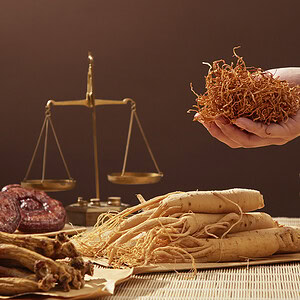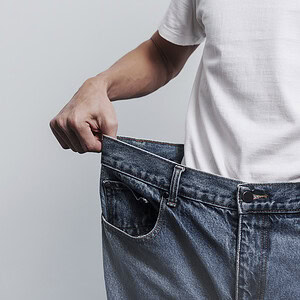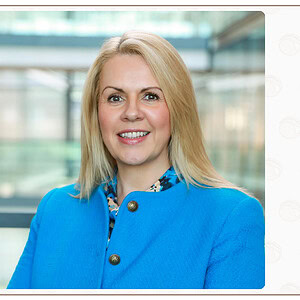Heather Rosa, Dean of the Institute for Optimum Nutrition, offers wise food choices during Ramadan.
Fasting during Ramadan is a time for spiritual growth and reflection. Both Suhoor, the pre-dawn meal and Iftar, the fast-breaking evening meal, have spiritual significance, offering moments to renew intentions and connect with others.
What should a balanced pre-dawn meal include to sustain energy throughout the day?
This year’s fast is relatively short, with sunrise in London at 6:47am and sunset at 5:30pm on 28 February. Consider preparing for Suhoor at least two hours before sunrise.
Simple, easy to prepare nourishing foods that provide nutrient density and maintain a stable blood sugar are the priority. A balanced pre-dawn meal should focus on fats and protein like eggs (cooked any way), thick 5%+ strained yoghurt, fish, lamb, beef, and cheese-based dishes. These provide satiety and help to maintain stable blood sugar. Olives and avocados add fats but save the olives for the evening meal as they are high in salt.
Slow-releasing carbs such as lentils and other beans make quick and easy soup bases, and hummus type dishes. If eating oats, ensure they are thick cut and add nuts and seeds (e.g., nut butters) to reduce the blood sugar rising effect.

How can people avoid energy crashes and dehydration during a fast?
Don’t skip Suhoor, this meal is vital for fuelling the mind and body for the day’s tasks.
Hydration is very important. Start hydrating as soon as you get up, place a large glass of water next to your bed as a prompt. Soups and stews can be prepared in advance and frozen in portions. These broth-based meals can also help to increase fluid intake. It’s crucial to drink plenty of water during Suhoor and Iftar.
What are the best foods to break a fast with, and why?
When breaking your fast keep an eye on your date consumption. If you can, break your fast with a protein-containing food like eggs, meatballs, red lentils, soups or hummus which help to stabilise blood sugar and avoid sweet food cravings.
How can people maintain good digestion and avoid bloating while fasting?
It’s best to consume simple, easy-to-prepare, nourishing foods that provide nutrient density and maintain stable blood sugar. Avoid overeating and too many carbonated drinks.
How can people navigate fasting while balancing work, exercise, etc.?
It’s a good idea to plan your meals and work/exercise schedule to ensure you get enough rest and nourishment. Taking short breaks throughout the day can help to conserve energy.
What are some quick, nutrient-dense meal ideas for Suhoor and Iftar?
For animal foods, a starting point for portion size is the palm of the hand. Meat and fish can also be cooked with beans and pulses and plenty of non-starchy vegetables – frozen are a great option – mushrooms, okra, peas, cauliflower, broccoli, spinach etc. Eggs and yoghurt, sliced meats and cheeses, salads with olive oil dressing, added nuts and or seed, eggs, cheese, chicken. Liver quickly fried with a salad of thin sliced onions and sumac. Try grilled fish. If eating oats, ensure they are thick cut and to reduce the blood sugar rising effect add nuts and seeds – these can be in the form of nut butters. Finally, consider continuing some of these healthy eating habits post Ramadan.
How can people ensure they’re getting enough protein and micronutrients during Ramadan?
Aim for at least 20g of protein in a meal, three eggs, 100g of fish or meat, one cup of cooked lentils/beans. Offal and meat are the most nutrient dense foods. Eat a variety of non-starchy vegetables, keep fruits to berries and citrus but not juiced, to ensure you are getting fibre, and enough hydration.
What are your thoughts on caffeine and sugar consumption during Ramadan – should they be avoided?
Do reduce tea and coffee intake as Ramadan approaches and increase water intake to help with withdrawal symptoms. During Ramadan, it’s best to limit caffeine intake to avoid dehydration. Try decaffeinated or coffee substitutes like herbal teas, and Aryan. It’s best to avoid fruit juices and sweetened drinks, even artificially sweetened ones. Reducing sugar consumption will help to maintain blood sugar levels and prevent energy crashes.
Are there any supplements you’d recommend during Ramadan to support energy and wellbeing?
Supplements can be taken before or after a fast. However, be cautious with multi-supplements, and especially zinc, as you can become nauseous if not taken with enough food. Supplements with high amounts of phytonutrients should be taken with meals that include fat for better absorption. For young women, especially those not consuming animal foods, a multi-vitamin with iron is recommended. Note that not all forms of iron are gentle on the digestion; look for ferrous forms. It’s advisable not to take supplemental B vitamins before bedtime, as they might disrupt sleep.
Enjoyed this article?
For articles and recipes subscribe to the Optimum Nutrition newsletter
Discover our courses in nutrition






